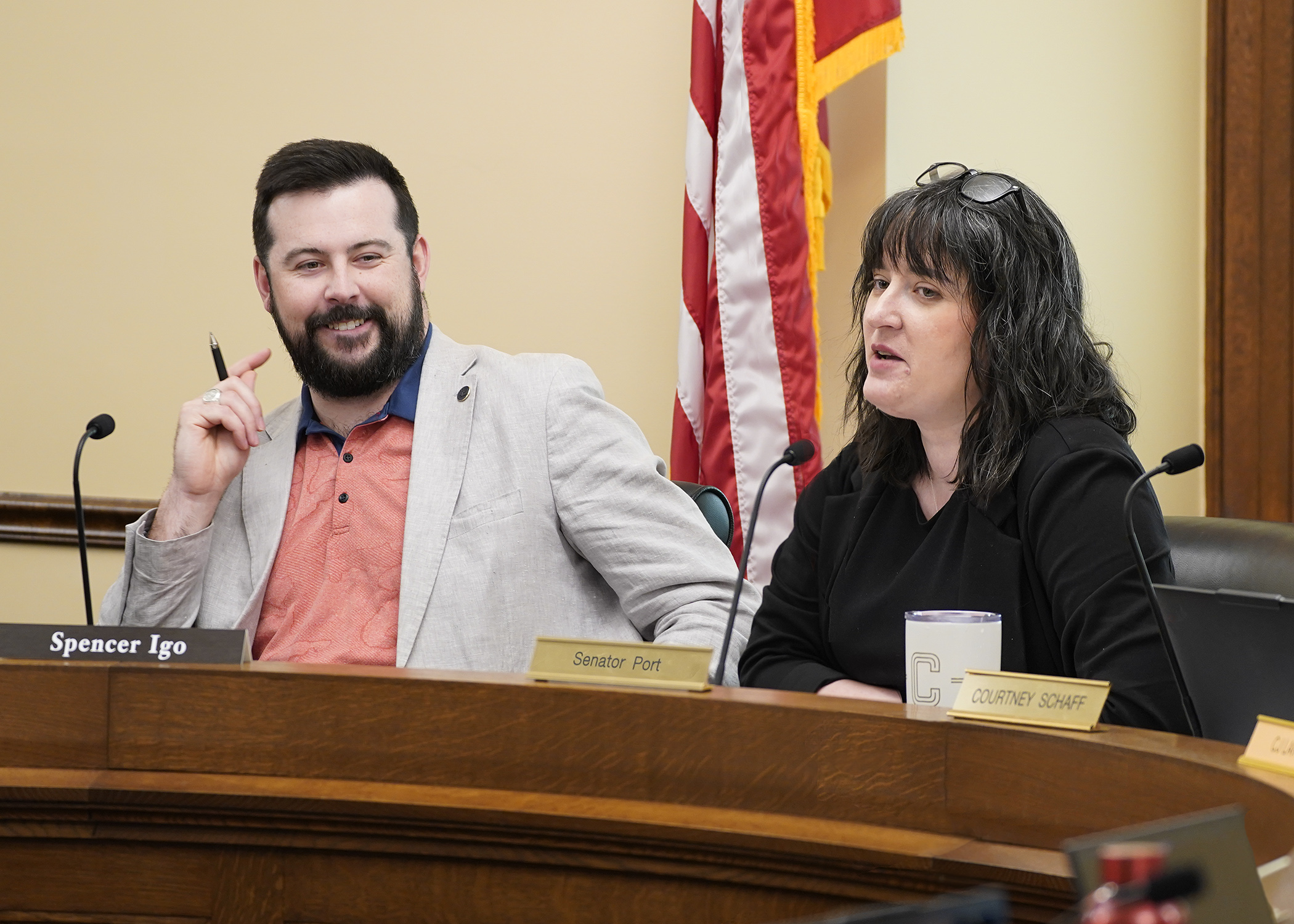House, Senate find common ground on key housing policies despite $72 million funding difference

Even with a $72 million divide between the House and Senate housing budget proposals, lawmakers say there’s plenty of agreement as the housing conference committee convened its first meeting Thursday for a walkthrough and public testimony.
The House bill proposes $75 million in new spending compared to the Senate’s $3 million increase over base in the February forecast. Despite the funding differences, co-chair Sen. Lindsey Port (DFL-Burnsville) said there is lots of common ground in both policy and finance provisions.
The final number will hinge on a global agreement among the House and Senate leaders and Gov. Tim Walz, said Rep. Spencer Igo (R-Wabana Township), who sponsors the omnibus housing budget bill, HF2445/SF2298*, with Port.
The House, with a much larger budget target, would put more money into several programs, including an additional $30.6 million going to the Family Homeless Prevention and Assistance Program compared to an additional $10.1 million in the Senate bill.
The House bill would also authorize the Minnesota Housing Finance Agency to issue up to $100 million in housing infrastructure bonds.
Other funding increases proposed by the House that are not matched by the Senate include:
- $20 million for Greater Minnesota housing infrastructure grants, compared to $2 million in the Senate bill;
- $10 million for the Housing Challenge Program;
- $10 million for the Greater Minnesota Workforce Housing Development Program;
- $2 million for manufactured home park infrastructure grants; and
- $500,000 to create a statewide tenant’s education hotline.
[MORE: View the conference committee spreadsheet]
Policy provisions
The House bill includes provisions that would offer incentives to local governments to change their land-use plans and zoning regulations. Cities that don’t require things like large lots, aesthetic mandates or three-car garages would get a scoring bump when applying for competitive housing grants.
RaeAnna Lee, Americans for Prosperity legislative and coalitions director for Minnesota, would like to see the state go further by eliminating regulations which she says increase the cost to build.
 Rep. Spencer Igo and Sen. Lindsey Port listen to member and staff introductions at the start of the housing conference committee. (Photo by Andrew VonBank)
Rep. Spencer Igo and Sen. Lindsey Port listen to member and staff introductions at the start of the housing conference committee. (Photo by Andrew VonBank)“Minnesotans are not asking for more process and red tape; they’re asking for a place to call home,” she said.
[MORE: Read side-by-sides; policy comparisons; public input]
Senate-only provisions would provide ongoing funding to the state’s first-generation downpayment program by adding it to the base. Additionally, the Senate would set limits on rent increases on units built using low-income housing tax credits.
Same or similar provisions passed by both chambers would:
- require recipients of local housing trust fund grants to use the money within five years;
- allow rental assistance money to be awarded by formula with any unused funds redistributed;
- amend a high-rise sprinkler grant program to make more buildings eligible; and
- ensure cities and counties allocating low-income tax credits are included wage-theft prevention laws.
Related Articles
Search Session Daily
Advanced Search OptionsPriority Dailies
Speaker Emerita Melissa Hortman, husband killed in attack
By HPIS Staff House Speaker Emerita Melissa Hortman (DFL-Brooklyn Park) and her husband, Mark, were fatally shot in their home early Saturday morning.
Gov. Tim Walz announced the news dur...
House Speaker Emerita Melissa Hortman (DFL-Brooklyn Park) and her husband, Mark, were fatally shot in their home early Saturday morning.
Gov. Tim Walz announced the news dur...
Lawmakers deliver budget bills to governor's desk in one-day special session
By Mike Cook About that talk of needing all 21 hours left in a legislative day to complete a special session?
House members were more than up to the challenge Monday. Beginning at 10 a.m...
About that talk of needing all 21 hours left in a legislative day to complete a special session?
House members were more than up to the challenge Monday. Beginning at 10 a.m...